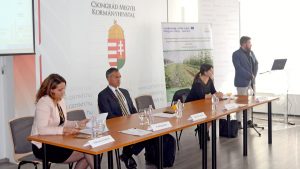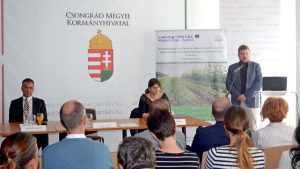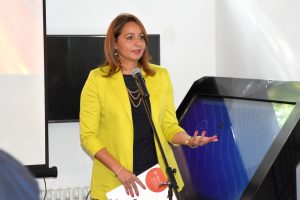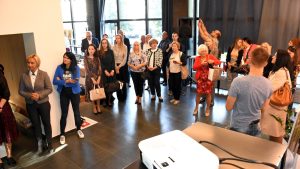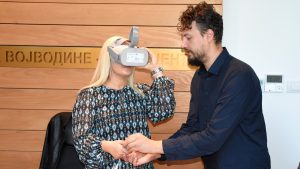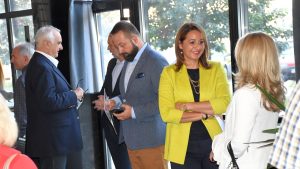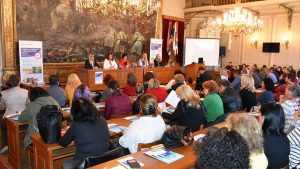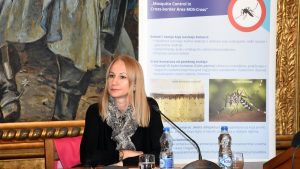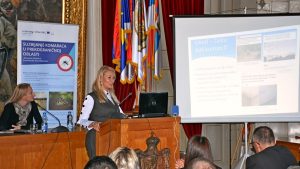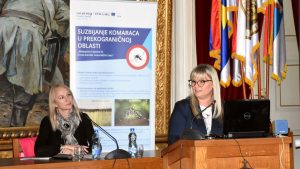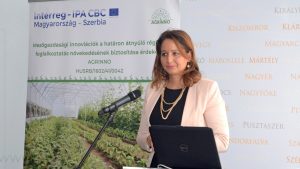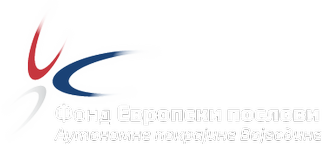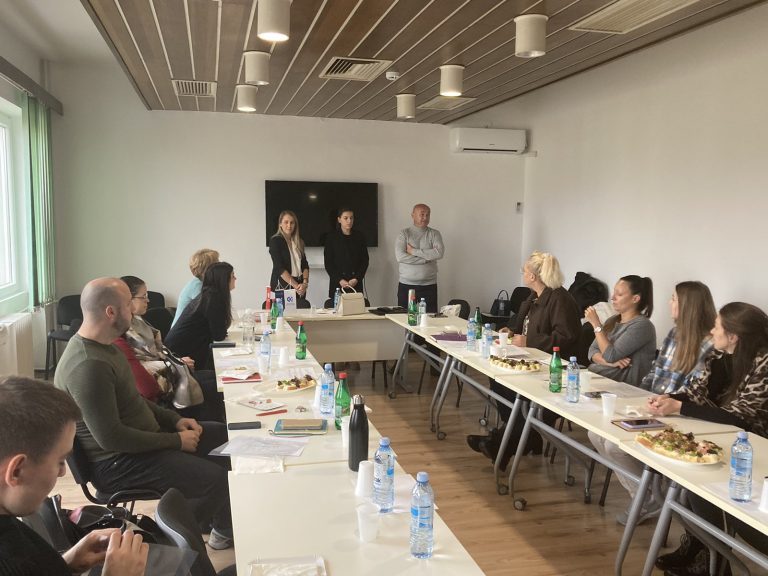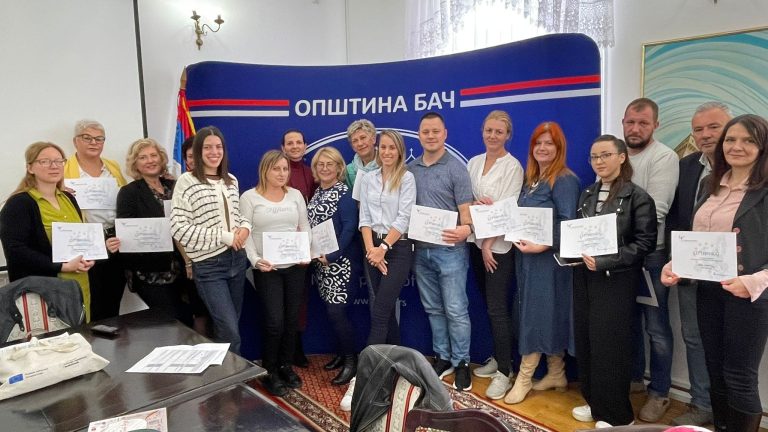Three EU projects in which the Fund was a partner have been completed
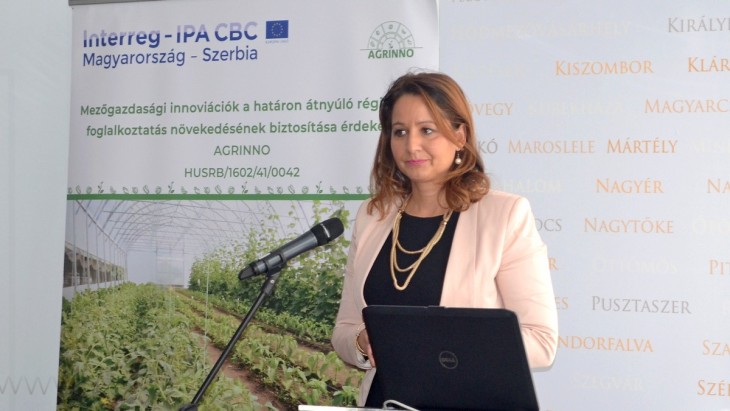
Implementation of our three EU projects was completed in October,namely: Mosquito Control in Cross-border Area (MOS-Cross), “Virtual and Cultural Tourism – ViCTour”, and “Agriculture innovation towards growth and employment in cross-border region – AGRINNO “.
“Mos-Cross” Project
Mos-Cross project was finished with closing ceremony in Sombor, at the City Council of the City of Sombor. The European Affairs Fund of AP Vojvodina implemented the project with its partners: the Public Health Institute Sombor and Institute of Public Health for the Osijek-Baranya County.
Vidosava Enderić, director of the European Affairs Fund of AP Vojvodina, addressed the audience and thanked the partners for being dedicated to work over the 27 months of the project. “In addition to financial assistance under the Cross-border Cooperation Programme, the key to the long-term objectives defined by the Europe 2020 Strategy is to maintain existing and establish new partnerships in future calls. The ‘MOS-CROSS’ project worth EUR 982,167 is not the only joint project of the European Affairs Fund of APV and partners from Osijek-Baranya County. The cooperation will continue in the future, as our new project ‘MOS- CROSS 2’ has been granted funding”.
In addition, “Europe, as a continent, is facing new diseases previously known only in tropical regions and regions of other climatic regimes. Invasive species arriving in Europe through different transport routes adapt to the new environment relatively quickly and inhabit a new space. Given the potential of mosquitoes to transmit the disease, their control is getting more and more important in Serbia and the world. Thus, as witnesses to the existing problems created by mosquitoes on both sides of the border, we also defined the project objective – to control mosquitoes in the cross-border region and improve the efficiency of the mosquito control system”, said Director Enderić and informed the participants that while the project was implemented, equipment for mosquito control and sampling was procured, the employees of the Public Health Institute Sombor and the Institute of Public Health for the Osijek-Baranya County, as well as general practitioners were trained in the protocols for identifying the symptoms of mosquito-borne diseases.
Also, maps showing the locations where mosquitoes lived were developed. Based on the maps, the entire border area was treated in an eco-friendly manner. Citizens were delivered mosquito dunks to control mosquito larvae and taught how to use them. Moreover, one of the important outcomes was software and a web platform which the Institutes started using during the project, containing information where mosquitoes laid eggs, where they lived, what the critical points to control them were, moreover, data on traps, their number and contamination. Finally, recommendations for local government units were developed to instruct them how to spend their budgets to control mosquitoes in the best and most efficient way.
The conference was attended by over 80 people from different institutions from Serbia and Croatia. The project was presented by the project manager Dr. Dragoslav Čubrilo, Public Health Institute Sombor, and prof. Magdalen Sikora, Public Health for the Osijek-Baranya County. Prof. Dr. Željka Jeličić Marinković, one of the lecturers at the training for health workers, spoke about the importance of education and the topic covered in the course of 4 workshops.
The participants also had the opportunity to watch an educational video clip about mosquitoes developed within the framework of the project.
The end of ViCTour project
The closing conference of the ViCTour project was held at the Vojvodina Tourist Information Center, in which the European Affairs Fund of AP Vojvodina cooperated with partners from the Vukovar-Srijem County, Tourist Board of Vukovar-Srijem County, Vojvodina Tourism Organization and the Faculty of Economics of the University of Novi Sad. Welcoming the guests from the Provincial Government, institutions of the City of Novi Sad, municipalities, media representatives and tourist operators, Vidosava Enderić, Director of the Fund, said that it was not the first time the Fund had cooperated with Croatian partners. “With the Vukovar-Srijem County, we have implemented a project on establishing a joint system and approach in response to flooding – EMBER, within the framework of the Cross-border Cooperation Programme, and a project on reducing the consequences, intensity and frequency of natural disasters and major accidents – DR SHARE, which was co-financed by the Directorate-General for Humanitarian Aid and Civil Protection. With the Faculty of Economics we conducted the third cycle of the Specialised Programme “Management of Regional Development through EU Funds,” said the Director, and stated that “in the past few years we have witnessed an incredibly rapid development of technology. Therefore, there is an opportunity for an unlimited number of ideas to be launched on the market in order to preserve the brand or create it. We decided to keep up with the modern world and set the goal to improve Srem’s tourist identity and our region’s offer.
We have also set the goal in a broader European context and aligned it with the objectives of the EU Strategy for the Danube Region and the EU for the Adriatic – Ionian Region, i.e. to promote economic and social prosperity and growth, culture and tourism, while improving attractiveness, competitiveness and connectivity of regions. During the implementation of the project, we have enriched the tourist offer of Srem by turning to innovation and ICT technologies. We have developed and installed 6 holograms in total in the cross-border region. The Fund installed 3 holograms on the Serbian side: at the Palace “Kasina” in Vrdnik, the former villa of the administration of the brown coal mine, at the Memorial Complex of Syrmian Front in Adaševci, the most significant monument in our area dedicated to World War II, and at the Imperial Palace in Sremska Mitrovica. In addition to the holograms, we have created augmented and virtual reality applications. On the Serbian side, these are the augmented reality applications about the monasteries of Fruška Gora and the Syrmian Front, and a virtual reality application about the Imperial Palace. Furthermore, there are multimedia audio guides, interactive totems, web portal… ”, said the director.
Prior to presenting the developed promotional video clip, the participants were addressed by Marija Budimir, Head of the Administrative Department for Tourism and Culture, Vukovar-Srijem County, and Rujana Bušić Srpak, Director of the Tourist Office, Tourist Board of Vukovar-Srijem County, whereas the project was presented by Magdalena Parat, project manager, representative of the Vukovar-Srijem County. The Vojvodina Tourist Organization was represented by Danijela Jokanović, who also addressed the attendees.
The closing conference of the “Agriculture innovation towards growth and employment in cross-border region – AGRINNO” project was held in Szeged.
At the closing conference, Vidosava Enderić expressed her satisfaction with the cooperation with all project partners. “Thanks to good cooperation, a new project proposal for AGRINNO 2 was developed and submitted under the third call of the INTERREG IPA CBC Hungary-Serbia. Given that we are facing a new EU budgetary perspective 2021-2027, we should be ready with new project idea proposals in order to contribute to the development of agriculture, as the most developed branch of industry in Vojvodina, as well as of other industries”, said the director and underlined the importance of using EU grants.
Beside the Fund’s director, partners on the project also addressed the audience, namely: Csongrád Megye Fejlesztéséért Nonprofit Kft, Predrag Rajić project manager of the AGRINNO project from the Provincial Secretariat for Agriculture, Water Management and Forestry, and Janko Červenski PhD. on behalf of the Institute of Field and Vegetable Crops.
The results of the project were presented at the conference. Among the results are the state-of-the-art greenhouses in the experimental field of the Institute of Field and Vegetable Crops and in the secondary agricultural schools in Futog, Ruma and Vršac. In addition to the greenhouses, incubators have been established and a number of workshops have been held on the topic “Growing plants in gardens”.
Partners from Hungary have successfully organised workshops on “Food production and marketing”. The AGRINNO project was presented at the 86th International Agricultural Fair in Novi Sad, where visitors had the opportunity to get acquainted not only with this project, but also to get informed about EU programmes available to the Republic of Serbia, and therefore to Vojvodina.
At the end of September, a conference was held within the project on the topic of “Innovative approach in agriculture”.


